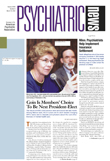Data have long suggested a link between the occurrence of a stroke and the subsequent development of depression. Now, data from a new study suggest that the reverse may also be true—that is, persons who are depressed may have a higher risk of later having not just any stroke, but especially a fatal stroke.
The potentially alarming new report, which appeared in the January issue of Stroke, a journal of the American Heart Association, found that middle-aged men who had symptoms of psychological distress, such as depression or anxiety, are as much as three times more likely to suffer a fatal stroke at some point in the future than an age-matched cohort who were not “psychologically distressed.”
Lead author Margaret May, M.Sc., a clinical researcher at the University of Bristol in England, along with colleagues at the University of London and Queen’s University in Belfast, reported their findings from the Caerphilly Study, an ongoing study of middle-aged men who live in an area of South Wales.
The Caerphilly study is a community-based, prospective study of cardiovascular disease and related outcomes following more than 2,800 men aged 45 to 59 who were recruited from 1979 to 1983.
The current report involves data, including 14 years of follow-up, from a second phase of the overall study, undertaken from 1984 to 1988 and involved just over 2,200 of the same study subjects.
The Caerphilly study is supported by grants from Great Britain’s Medical Research Council and the National Health Service research and development program. May’s study was supported by a grant from the Stroke Association.
Increased Mortality?
The most striking finding of the report is that while the incidence of developing a fatal stroke was increased by baseline psychological stress, having depression and/or anxiety did not increase the risk of developing a nonfatal stroke. In addition, there was no apparent link between depression or anxiety and transient ischemic attacks, or TIAs, the so called “mini-strokes” that are often a precursor to more significant strokes. The researchers looked only at the correlation of stroke to depression or anxiety present at the beginning of the study; data were not presented to indicate depression or anxiety present at the time of the actual stroke.
When the researchers controlled for confounding variables such as obesity, high blood pressure, smoking, heavy drinking, social class, and marital status, the relative risk for fatal stroke remained unchanged at 3.36 times the control group, and the risks for nonfatal strokes and TIAs were also unchanged at 1.25 and 0.63 times the control group, respectively.
However, when the researchers further controlled for the presence of previously diagnosed ischemic heart disease, diabetes, respiratory disease (such as chronic obstructive pulmonary disease, or COPD), and for “early retirement due to ill health,” the relative risks did decrease somewhat.
Even so, the risk of developing a fatal stroke was still two-and-a-half times higher in those with depression or anxiety than those without psychological distress. In addition, the researchers reported, there appeared to be a “graded association between degree of psychological distress and the risk of fatal ischemic stroke.”
May and her colleagues noted that, to their knowledge, this was the first study to examine the association between psychological distress and both fatal and nonfatal strokes as well as with TIAs.
The authors then asked why distress at baseline would predict the occurrence of fatal strokes down the line, while not being predictive of nonfatal strokes or TIAs. They suggested two possibilities: The distressed subjects might have had more severe strokes than their nondistressed counterparts, or they might have had equally severe strokes, yet for some unknown reason had a subsequently higher fatality rate.
Questions Unanswered
Unfortunately, data on the severity of the strokes (other than defining those that were fatal) were not included in the report.
In addition, as noted in an accompanying editorial by Robert M. Carney, Ph.D., and Kenneth E. Freedland, Ph.D., both of the department of psychiatry at Washington University School of Medicine in St. Louis, who acted as guest editors for the issue, “all we know about the psychological state of the subjects is that they were distressed at enrollment.” No data are reported on any psychiatric disorders present at baseline or through the 14-year follow-up, they noted.
“Additional studies are needed in which standardized psychiatric interviews, along with questionnaires. . . are administered repeatedly over time.” Such a study, they suggested, will be difficult and complex to carry out. It would, however, be “essential if we are to gain a thorough understanding of the parameters of exposure to psychological distress and of how and why exposure increases the risk of fatal ischemic stroke.”
Such knowledge, Carney and Freedland postulated, could enable clinicians to identify depressed patients who are at increased risk of stroke, as well as to target the most harmful components of depression for the most aggressive treatment.
Stroke 2002 33 7
